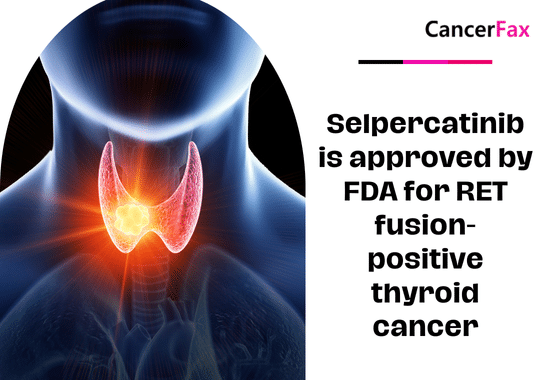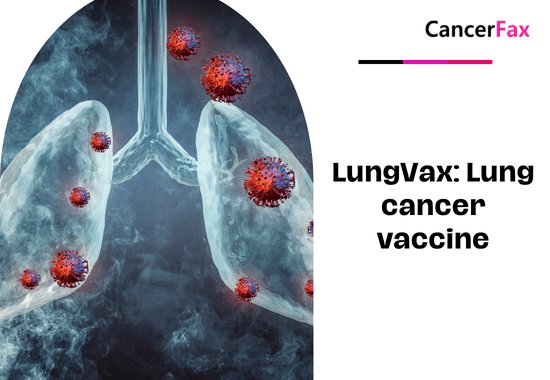May 2024: The Food and Drug Administration has officially approved selpercatinib (Retevmo, Eli Lilly and Company) for the treatment of advanced or metastatic RET fusion-positive thyroid cancer in both adult and pediatric patients aged 2 years and older. This approval is specifically for patients who require systemic therapy and have not responded to radioactive iodine treatment (if applicable).
Selpercatinib obtained expedited approval for this specific use in patients aged 12 and above in 2020.
The efficacy of the treatment was assessed in the LIBRETTO-001 (NCT03157128) clinical trial, which involved 65 patients with RET fusion-positive thyroid cancer. These patients were refractory to radioactive iodine (RAI) treatment, if it was a suitable option, and had not received any systemic therapy before, or had been previously treated in different groups.
The primary metrics of effectiveness were the overall response rate (ORR) and the duration of response (DOR). The objective response rate (ORR) was 85% (95% confidence interval [CI]: 71%, 94%) in the group of 41 patients who had received previous treatment, and 96% (95% CI: 79%, 100%) in the group of 24 patients who had not had systemic medication before. The median duration of response (DOR) was 26.7 months (95% confidence interval [CI]: 12.1, not evaluable [NE]) in the patients who had received previous treatment, and NE (95% CI: 42.8, NE) in the patients who had not received systemic medication before.
The study LIBRETTO-121 (J2G-OX-JZJJ; NCT03899792) provided evidence supporting the effectiveness of selpercatinib in treating RET fusion-positive thyroid cancer in 10 pediatric and young adult patients. This study is an international, single-arm, multi-cohort clinical trial that looks at how selpercatinib can help kids and young adults with solid tumors that have become RET-altered. The objective response rate (ORR) was 60% with a 95% confidence interval (CI) ranging from 26% to 88%. Furthermore, 83% of the participants had a response duration of at least 12 months.
The predominant side effects (≥25%) included swelling, gastrointestinal distress, exhaustion, oral dryness, high blood pressure, stomach discomfort, difficulty passing stools, skin irritation, queasiness, and head pain. The most prevalent laboratory abnormalities in Grade 3 or 4 were lymphocyte depletion, elevated alanine aminotransferase (ALT), elevated aspartate aminotransferase (AST), reduced salt levels, and reduced calcium levels.
The body surface area of pediatric patients aged 2 to less than 12 years determines the appropriate dosage of selpercatinib. For those who are 12 years of age and older, the dosage depends on the patient’s weight. Refer to the prescribed instructions for precise details on dosage.


